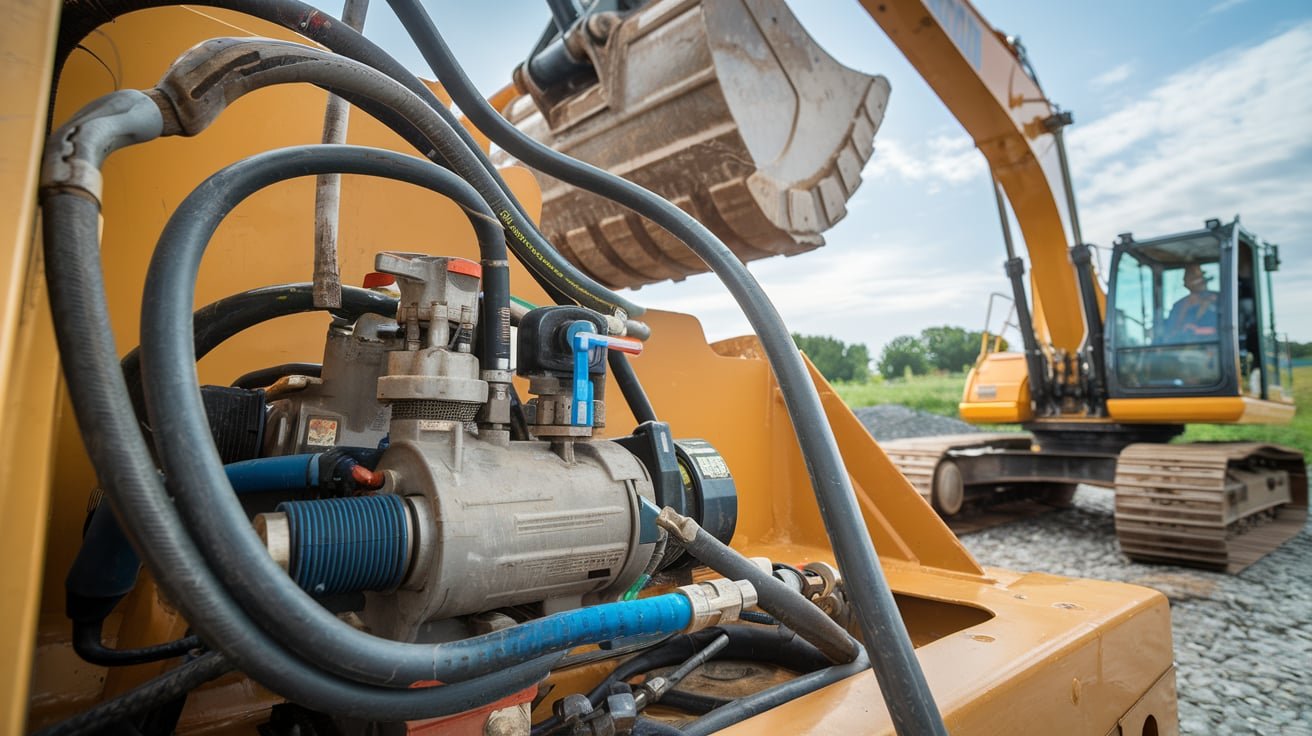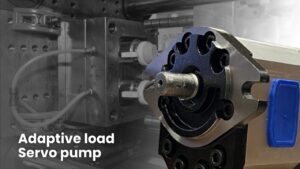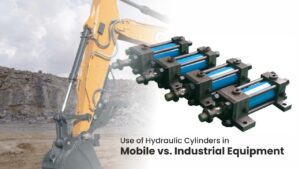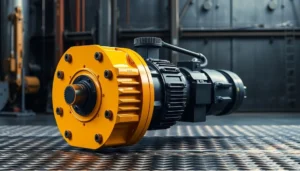Explore the top features of hydraulic systems for mobile equipment. Boost the productivity of construction equipment with smarter, stronger hydraulics.
Hydraulic systems for mobile equipment play an important role in the construction industry. These systems are the backbone of modern heavy machinery, helping operators to perform heavy tasks with control and efficiency. They are well-designed to power everything from excavators to backhoe loaders with unmatched force and precision. The right mobile hydraulic design can make jobs like lifting, digging, or moving tons of material easy for the operators.
With the demand for high productivity and reliability, the importance of well-engineered hydraulic solutions is growing rapidly. For contractors and equipment managers, understanding the primary features of hydraulic systems is crucial to selecting machines that deliver improved performance while minimizing downtime. Additionally, on-time, mobile hydraulic repair and expert mobile hydraulic services are essential for keeping the construction operation running smoothly.
In this blog, we will discuss the top features of hydraulic systems for mobile equipment. Further, we will explore the challenges and maintenance of hydraulic design.
What Are Hydraulic Systems?
Hydraulic systems are the backbone of many industries, providing the force to the machinery that moves, lifts, and powers various applications. Hydraulics play an important role in the efficient operation of machines, such as construction equipment, manufacturing plants, and so on.
To understand the importance of the hydraulic system, it is crucial to be aware of hydraulic principles. This principle includes the main concept that fluids are incompressible. Fluids in a vacuum generate pressure, which is transmitted through the fluid to perform tasks, such as lifting, moving, or digging.
To understand the importance of hydraulic systems, you should be familiar with Pascal’s law. This includes the concept that fluids, often oil, are incompressible. A confined fluid generates pressure in hydraulic systems, which transmits through the fluid to perform tasks, such as lifting, moving, or compressing.
Mobile hydraulic design consists of several components that work together to convert pressure, fluid flow and energy into mechanical motion. Each component of hydraulic systems supports the operation, making them important for different industrial applications.
The main components of hydraulic systems are:
- Hydraulic pump
- Hydraulic cylinder
- Hydraulic motor
- Hydraulic fluid
- Valves
- Filters
- Accumulators
- Hoses and Pipes
Top Features Of Hydraulic Systems In Construction Equipment
The key features of hydraulic systems make them useful in construction equipment. Essential features of hydraulic systems in mobile equipment include the following:
Unmatched Power And Force
One of the best features of mobile hydraulic design is its ability to deliver significant power without adding extra weight to the equipment. This power allows construction equipment to perform heavy-duty tasks, such as lifting heavy loads or breaking walls or tough ground with minimal energy loss.
Precision, Control And Flexibility
hydraulic systems for mobile equipment focuses on smooth and responsive controls. This helps operators to execute delicate tasks such as fine grading or lifting loads with exact positioning. Moreover, valves and electronic control systems contribute to this high level of accuracy, ensuring productivity and safety as well.
High Efficiency And Reliability
Advanced systems for mobile equipment use technology such as load-sensing hydraulics and flow-on-demand circuits, which control the power output based on the task.This reduces energy waste, lowers fuel consumption, and minimizes wear on the company. Regular mobile hydraulic repair and preventive maintenance services can help enhance equipment life and prevent costly breakdowns.
Safety And Load Handling Capability
Moving and lifting heavy loads is possible with hydraulics. Hydraulic system construction equipment, such as construction and forklifts, allow operators to perform tasks with minimal effort.
Integration With Advanced Technology
In this era, the hydraulic system is smarter than ever. Features such as sensors, electronic control units, and telematics are integrated into hydraulic systems for mobile equipment.This integration has enhanced the performance, monitoring, real-time diagnostics, and predictive maintenance.These features enable operations and reduce unexpected downtime through efficient mobile hydraulic services and remote troubleshooting.
Challenge And Maintenance Of Hydraulic Design
The modern hydraulic systems for mobile equipment also come with several challenges. These challenges may arise from fluid, contamination, leaks, and general wear and tear of parts. However, you can overcome these challenges with routine mobile hydraulic services.
Preventing Contamination
Contaminated fluid is one of the biggest enemies of your hydraulic system. To overcome this challenge, regularly replace filters and use high-quality hydraulic fluid.
Inspecting For Leaks
Frequently check for leaks in hydraulic hose ends and fittings to save hydraulic systems in mobile equipment from pressure loss.
Regular Lubrication And Component Checks
Greasing all the moving parts and inspecting the cylinder, pump, and valves can extend the lifespan of the system. By visiting a professional mobile hydraulic repair, you can reduce the costly downtime and keep the hydraulic system in the best condition.
Conclusion
Hydraulic systems for mobile equipment are the main force behind high-performance construction machinery. From high efficiency and control to unmatched power and force, the system offers features that enhance the productivity, safety, integrity, and operational efficiency of different mobile equipment.
It is crucial to understand the key features, such as optimizing the performance through a smart mobile, hydraulic design, or ensuring uptime with expert mobile, hydraulic repair, and services of hydraulic systems for mobile equipment, before investing in it. These modern hydraulic systems are becoming more intelligent, efficient, and adaptable, empowering their role in modern construction equipment.
Equipment, managers, operators, and service professionals looking to upgrade their hydraulic system, contact THM Huade today! You are a trusted partner for advanced mobile hydraulic solutions.
Frequently Asked Questions
Are hydraulic systems environment-friendly?
Modern hydraulic systems have eco-friendly and biodegradable hydraulic fluids that make them environmentally friendly.
What are the five advantages of a hydraulic system?
The key advantages of hydraulic systems are:
- Small and lightweight.
- High precision and fast response
- Large driving force
- White speed control range
- Self-lubrication and self-cooling
- Long life
- Easily integrated with advanced technology
What is the use of hydraulic systems in construction equipment?
Hydraulic systems in construction equipment perform essential tasks, such as lifting, digging, and moving heavy material.
What are the five major components of a hydraulic system?
The major components of hydraulic systems are the hydraulic pump, valve(s) and actuator(s), motor, cylinder, etc.



